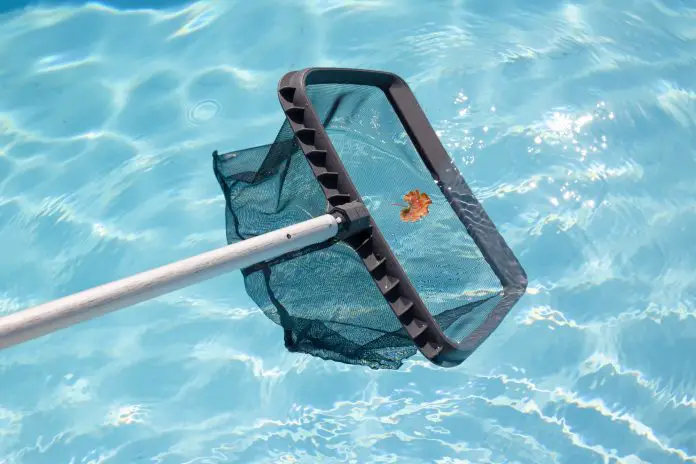Key Takeaways
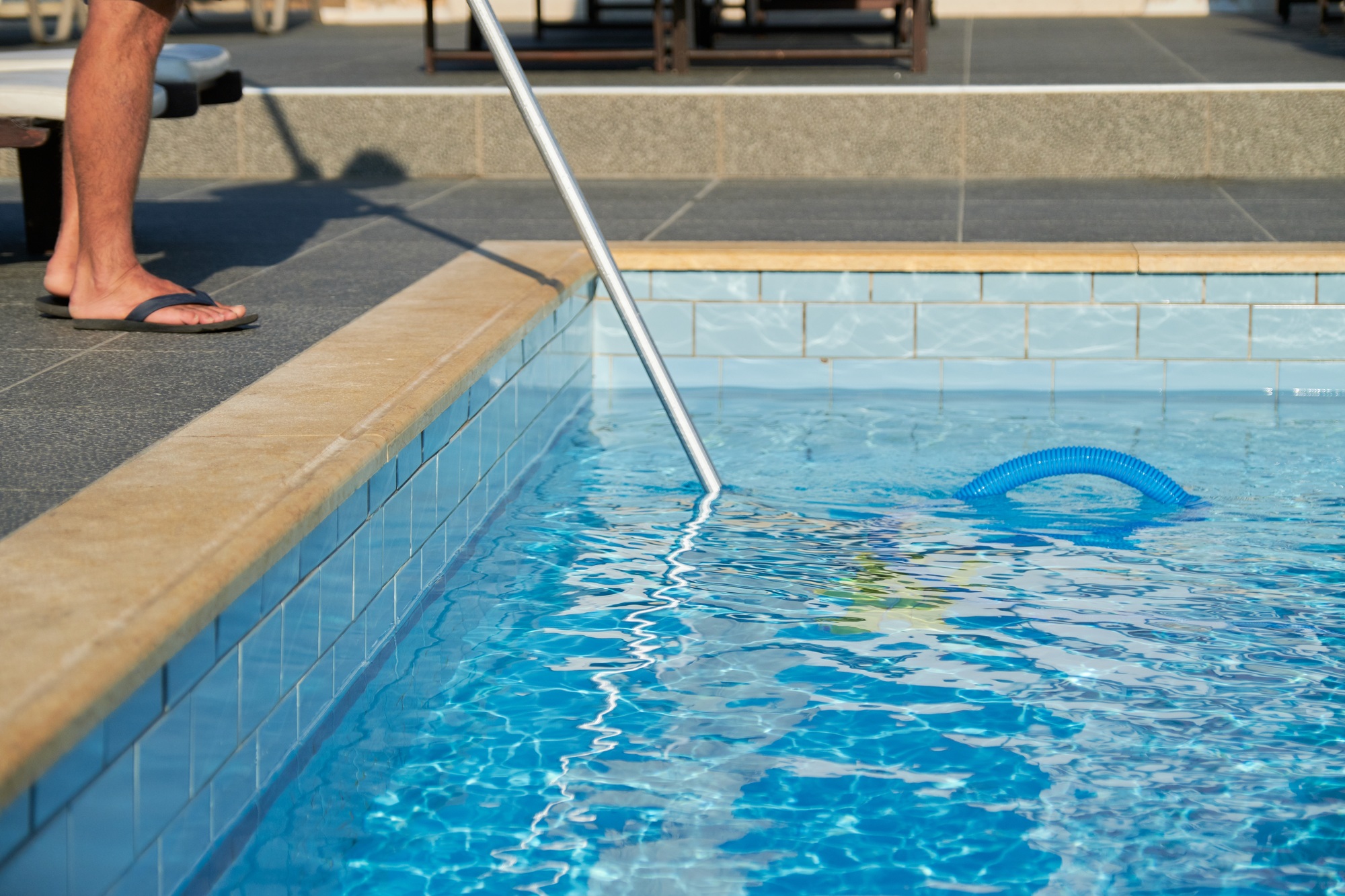
- Growing Market Opportunity: The pool cleaning industry is expanding, with over 10 million residential pools in the U.S., presenting significant business potential in warmer climates.
- Diverse Service Offerings: Successful pool cleaning businesses should provide a range of services including regular maintenance, one-time cleanings, repairs, seasonal closings, and equipment installation to meet varied customer needs.
- Thorough Market Research: Conducting comprehensive market research helps identify customer demographics, preferences, and the demand for sustainable cleaning solutions, allowing for tailored service offerings.
- Legal Compliance and Structure: Ensure you obtain the necessary licenses and permits for operation, and select a suitable business structure (Sole Proprietorship, LLC, Corporation) to manage liability effectively.
- Essential Equipment: Invest in high-quality cleaning tools and chemicals, such as telescopic poles, skimmer nets, and chlorine, to enhance service quality and operational efficiency.
- Effective Marketing Strategies: Utilize digital marketing techniques, build a strong brand presence, and engage in local SEO to attract customers and establish your pool cleaning business in the marketplace.
Starting a pool cleaning business can be a rewarding venture, especially in sunny areas where pools are a staple of outdoor living. With more homeowners looking to maintain their pools, diving into this industry offers not just financial potential but also the chance to work outdoors and connect with your community.
Understanding the Pool Cleaning Industry
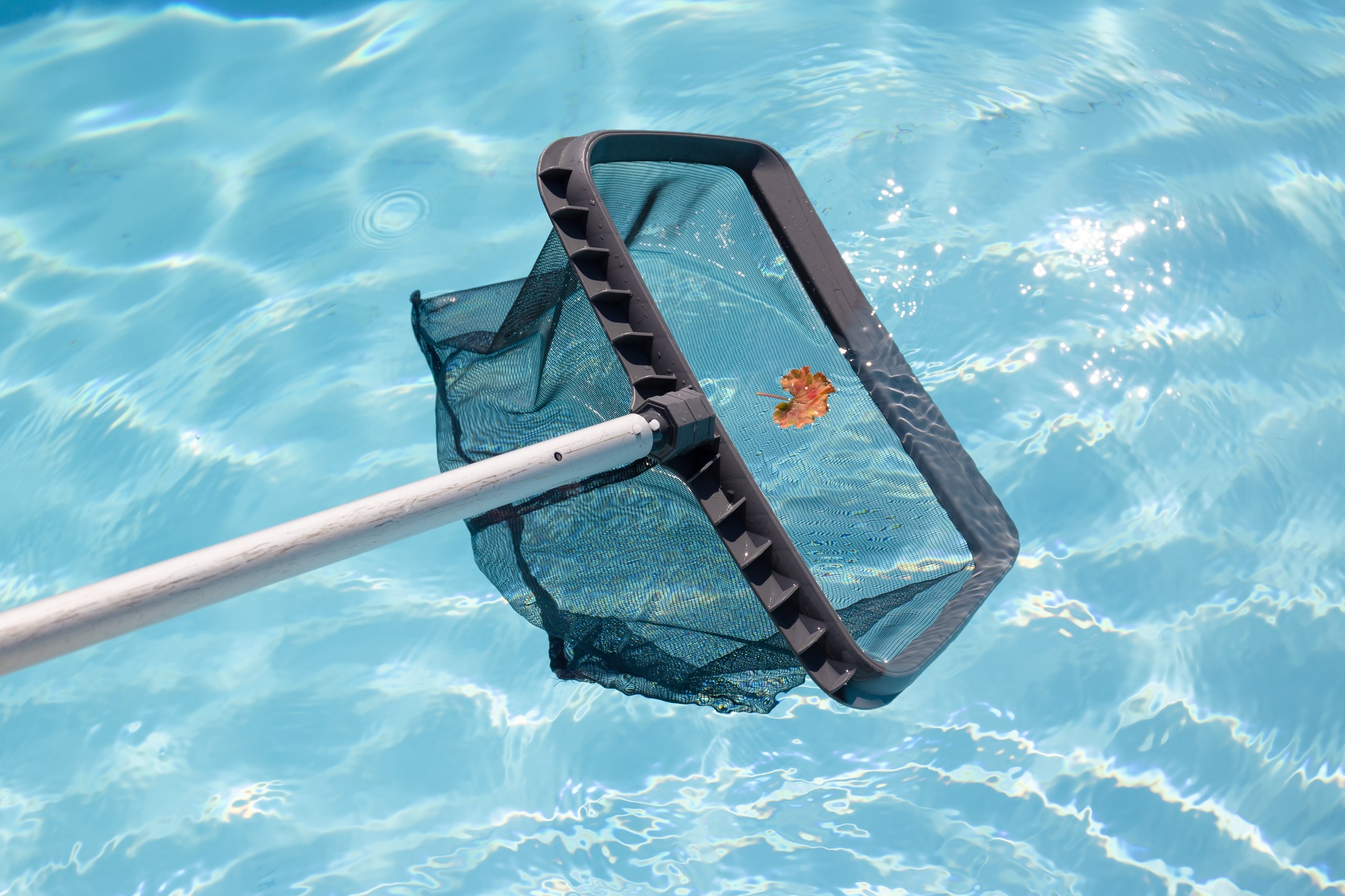
The pool cleaning industry presents a lucrative opportunity for small business startups. With a steady increase in pool ownership, the demand for professional maintenance services steadily rises.
Market Demand and Trends
Market demand for pool cleaning services remains strong, particularly in areas with warmer climates. According to the Association of Pool & Spa Professionals, over 10 million residential pools exist in the United States, creating a significant customer base. Homeowners prioritize clean and well-maintained pools, leading to an annual service growth rate of approximately 3% to 4%. Trends show that eco-friendly cleaning products and automated maintenance equipment are frequently sought after, reflecting a shift towards sustainability within the industry.
Types of Pool Cleaning Services
You can offer various pool cleaning services, enhancing your startup’s versatility. Key services include:
- Regular Maintenance: Routine cleaning services that include skimming, vacuuming, and chemical balancing.
- One-Time Cleanings: Intensive cleaning sessions often needed before events or after prolonged periods of inactivity.
- Repairs: Services to fix equipment and structural issues, such as filter replacements and repairing leaks.
- Seasonal Closings: Safely preparing pools for winter, including water drainage and cover installation.
- Equipment Installation: Installation of pool heaters, pumps, or cleaning systems.
By diversifying service offerings, you can cater to different customer needs and increase your business’s profitability.
Steps to Start a Pool Cleaning Business
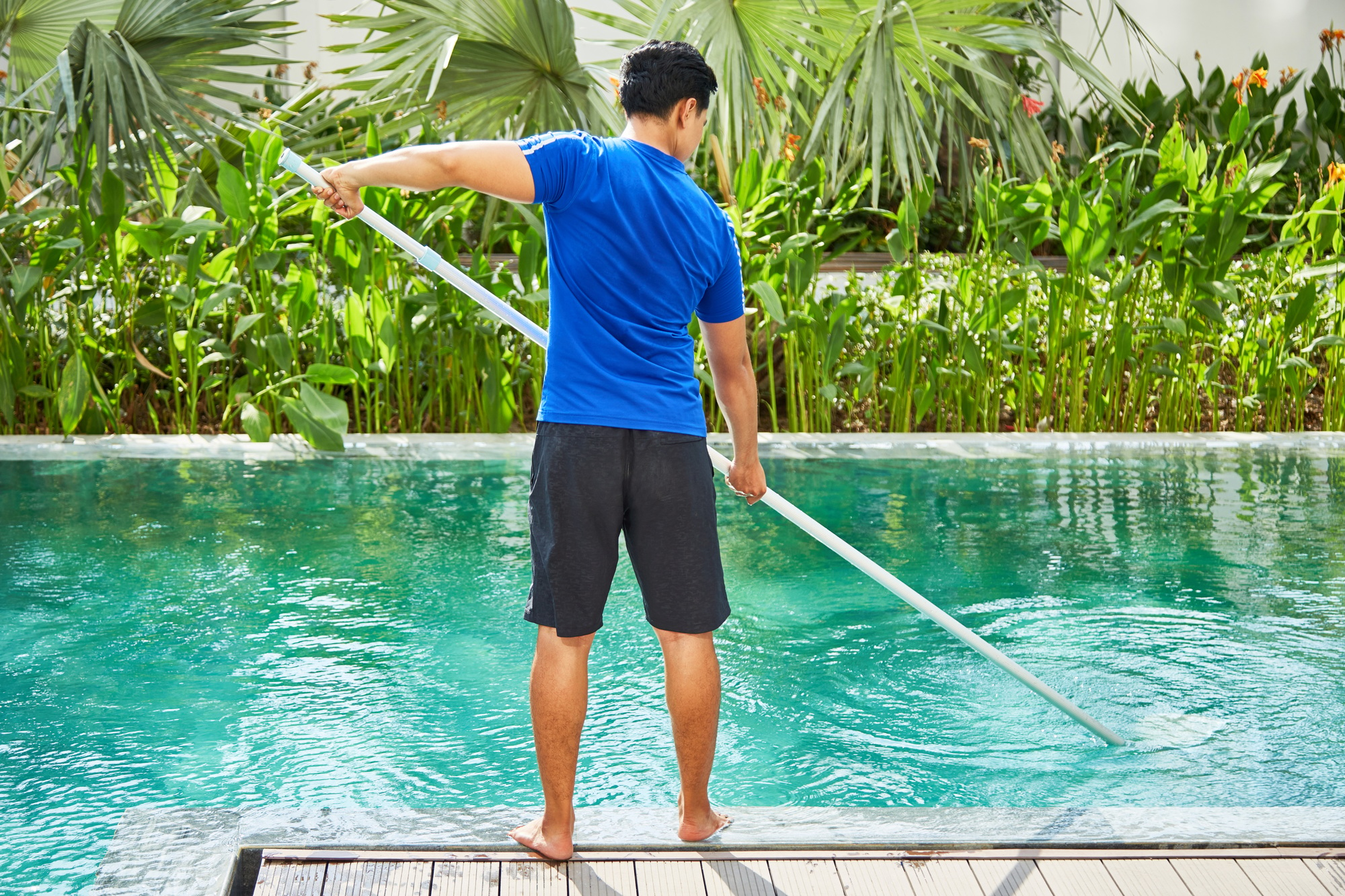
Starting a pool cleaning business involves several crucial steps. Focus on every detail to build a successful small business in this growing industry.
Conducting Market Research
Conduct market research to understand demand for pool cleaning services in your area. Identify the number of pool owners and assess their willingness to pay for services. Use surveys and interviews to gather insights. Analyze demographic data to discover age groups, income levels, and lifestyles of potential customers. Recognize trends, such as increased demand for sustainable cleaning solutions. Knowing your market helps tailor your services effectively.
Creating a Business Plan
Create a comprehensive business plan that outlines your startup strategy. Include your business goals, target market, pricing structure, and marketing strategies. Establish a strong financial plan that addresses startup costs, operating expenses, and projected revenues. Determine necessary permits and insurance for your operations. A solid business plan provides a roadmap for your small business and helps secure funding if needed. Regularly review and adjust your plan to adapt to market changes.
Legal and Financial Considerations

Starting a pool cleaning business requires careful attention to legal and financial aspects. Addressing these considerations upfront helps ensure compliance and sets a solid foundation for your startup.
Licensing and Permits
Obtaining necessary licenses and permits is crucial for operating your pool cleaning business legally. These requirements vary by state and locality. Common licenses include:
- Business License: A general requirement for most small businesses.
- Tax ID Number: Essential for tax purposes and affects how you report income.
- Special Permits: Necessary if you handle pool chemicals or install pool equipment.
For instance, in Florida, you must obtain a pool service license from the Florida Department of Health, which involves specific training and testing. In Texas, if you’re servicing residential pools, a Residential Appliance Installer License is often required.
Setting Up Your Business Structure
Choosing the right business structure can impact your taxes, liability, and overall management. Common structures include:
- Sole Proprietorship: Simplest form but offers less personal liability protection.
- Limited Liability Company (LLC): Provides liability protection and may offer tax advantages.
- Corporation: More complex with additional regulatory requirements but suitable for larger businesses.
Consider consulting with a legal expert to determine the best option for your startup. Establishing a clear business structure not only helps manage liability but also prepares you for potential growth in the future.
Equipment and Supplies Needed

Starting a pool cleaning business requires specific equipment and supplies to efficiently serve your customers. Here’s a list of essential cleaning tools and recommended chemicals to ensure success.
Essential Cleaning Tools
- Telescopic Pool Pole: This versatile tool is pivotal for attaching various cleaning tools like nets, brushes, and vacuums. Choose a pole at least 16 feet long and made from heavy-duty aluminum for durability.
- Skimmer Net: Use this tool to remove leaves, insects, and other debris from the surface of the pool. Opt for a skimmer net with fine mesh to effectively capture dirt and pollen.
- Pool Brush: Essential for scrubbing walls, floors, and steps, this tool prevents algae buildup. Stainless steel brushes work best for gunite pools, providing thorough cleaning.
- Pool Vacuum: A vital tool to remove dirt and debris from the bottom and hard-to-reach areas. Various types include manual, robotic, suction-side, and pressure-side vacuums. Select the type that aligns with your business model and customer needs.
Recommended Chemicals and Products
- Chlorine: Widely used for sanitizing pool water. Use appropriate formulations to maintain safe chlorine levels in customer pools.
- Algaecide: This chemical helps prevent and treat algae growth in pools. Regular use keeps pools sparkling clean and promotes customer satisfaction.
- pH Balancers: Use these products to maintain water balance, ensuring safe swimming conditions. Regular testing is essential to determine pH levels.
- Pool Shock: This superchlorination product eradicates contaminants quickly. Regular application improves water clarity and safety.
Equipping your small business with the right tools and chemicals maximizes efficiency and enhances service quality. Prioritize the selection of high-quality equipment and supplies to build a strong reputation in the pool cleaning market.
Marketing Your Pool Cleaning Business

Effective marketing is crucial for attracting customers to your pool cleaning business. You must implement strategies that establish your presence and reach potential clients in your area.
Building a Brand
Building a strong brand differentiates your startup from competitors. Create a memorable business name and logo that reflect your services. Define your unique selling proposition (USP) to highlight what sets you apart, such as eco-friendly practices or exceptional customer service. Develop brand consistency across all platforms, including your website, social media profiles, and promotional materials, to enhance recognition and trust among potential clients.
Utilizing Digital Marketing Strategies
Utilizing digital marketing strategies plays a vital role in promoting your pool cleaning services.
- Create a website that showcases your offerings, including pricing and contact details. Ensure it’s mobile-friendly and optimized for search engines to attract local customers searching for pool services.
- Engage on social media platforms like Facebook and Instagram to share before-and-after photos of your work, customer testimonials, and promotional offers. Regularly post engaging content to keep your audience informed and interested.
- Use local SEO techniques to improve your visibility in search results. Incorporate keywords such as “pool cleaning services near me” and “local pool maintenance” in your website content to increase organic traffic.
- Implement online ads through platforms like Google Ads or Facebook Ads to target specific demographics interested in pool services. Set a budget for paid promotions to reach a broader audience effectively.
By focusing on these marketing strategies, you can increase your startup’s visibility and establish a strong foothold in the competitive pool cleaning market.
Conclusion
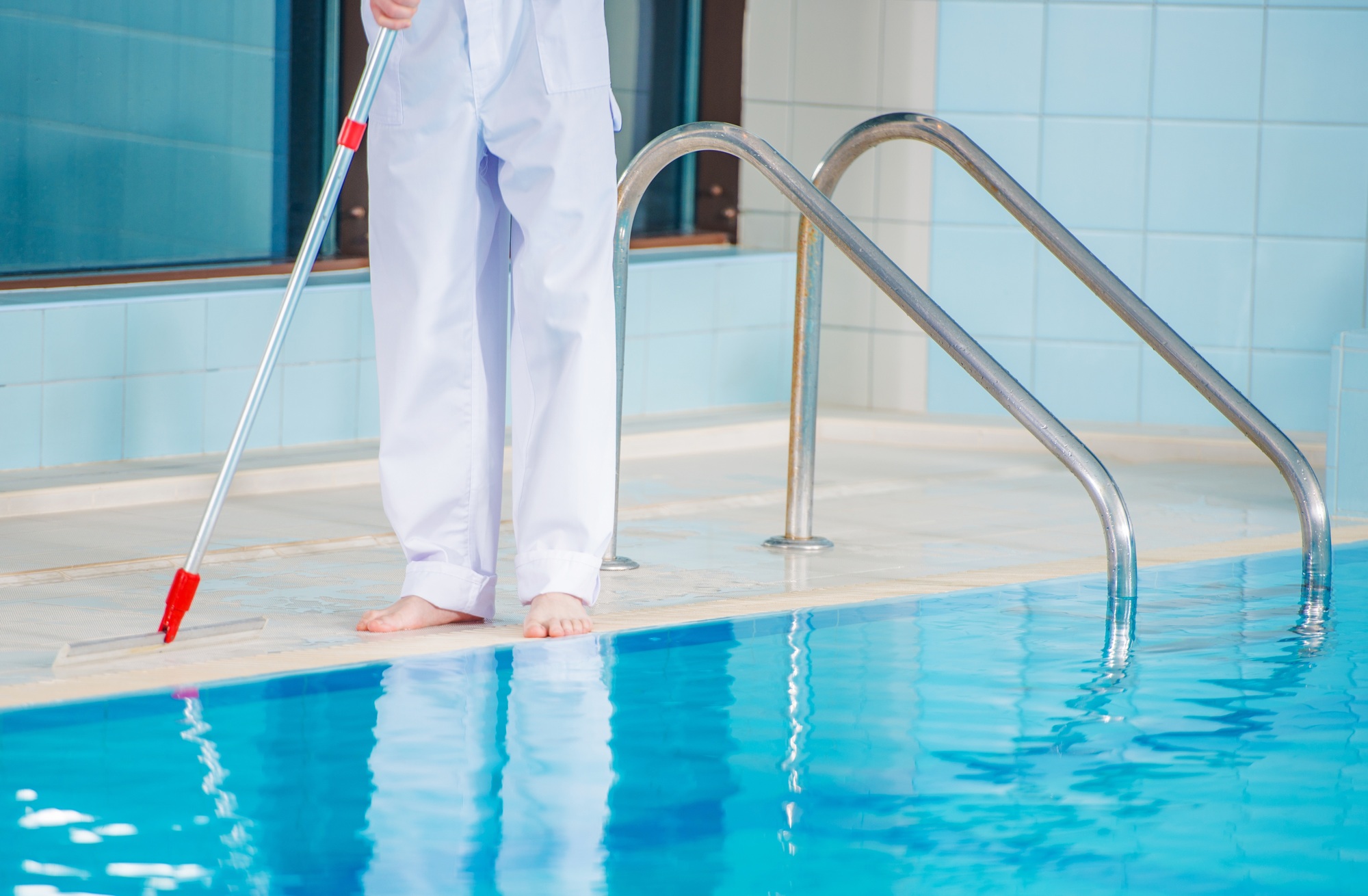
Starting a pool cleaning business can be a fulfilling and profitable venture. With the right planning and execution you can tap into a growing market eager for reliable maintenance services. Remember to focus on building a strong brand and implementing effective marketing strategies to attract customers.
Investing in quality equipment and eco-friendly products will not only enhance your service but also set you apart from competitors. As you navigate the legal and financial aspects make sure to stay compliant and prepared for future growth.
By following these steps you’ll be well on your way to establishing a successful pool cleaning business that meets the needs of your community and thrives in a competitive landscape.
Frequently Asked Questions
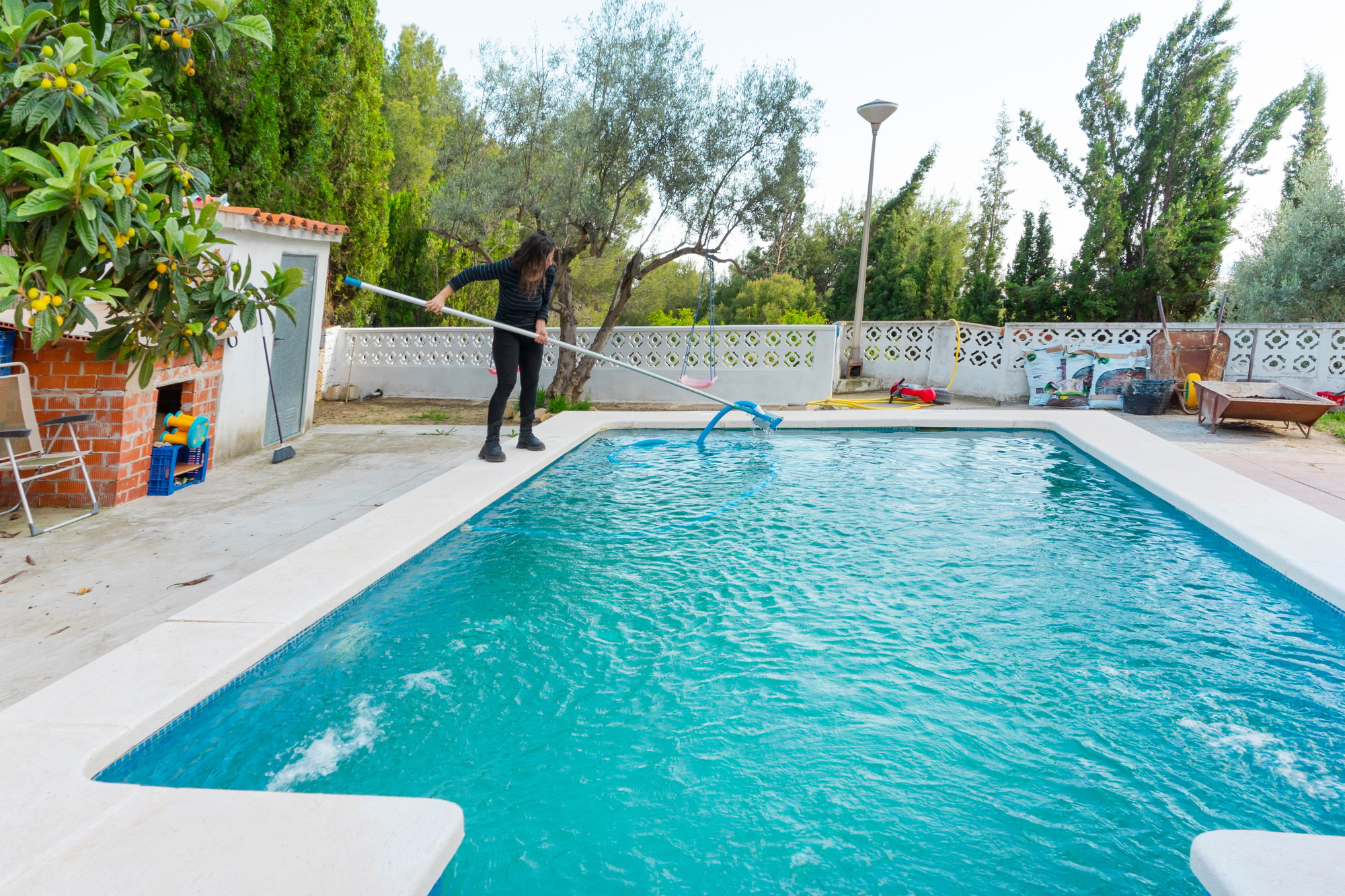
What are the benefits of starting a pool cleaning business?
Starting a pool cleaning business offers financial opportunities and the chance to work outdoors while engaging with your community. The growing demand for pool maintenance services, especially in sunny areas, can lead to steady income as pool ownership continues to rise.
How much can I earn in a pool cleaning business?
Earnings in a pool cleaning business can vary widely based on location and services offered. On average, pool cleaners can make between $50 to $100 per pool, with potential for higher income through regular maintenance contracts and additional services.
What types of services can I offer?
Your pool cleaning business can offer a variety of services, including regular maintenance, one-time cleanings, equipment repairs, seasonal pool closings, and installation of pool equipment. Diversifying your services can cater to different customer needs and increase profitability.
What do I need to start a pool cleaning business?
To start a pool cleaning business, you’ll need to conduct market research, create a business plan, obtain necessary licenses and permits, and purchase essential equipment like brushes, vacuums, and cleaning chemicals. A solid business plan will help outline your strategy and goals.
Are there legal requirements for a pool cleaning business?
Yes, starting a pool cleaning business requires specific licenses and permits, which can vary by state or locality. Commonly needed are a business license, tax ID number, and permits for handling pool chemicals. Consulting with a legal expert is advised for compliance.
What equipment do I need to operate effectively?
Essential equipment includes a telescopic pool pole, skimmer net, pool brush, vacuum, and necessary chemicals like chlorine and pH balancers. Investing in high-quality tools can maximize efficiency and enhance service quality in your pool cleaning business.
How can I market my pool cleaning business?
Effective marketing strategies include building a recognizable brand, creating a mobile-friendly website, engaging on social media, and using local SEO techniques. Online advertising using platforms like Google Ads and Facebook Ads can help reach a wider audience and attract new customers.
Image Via Envato


